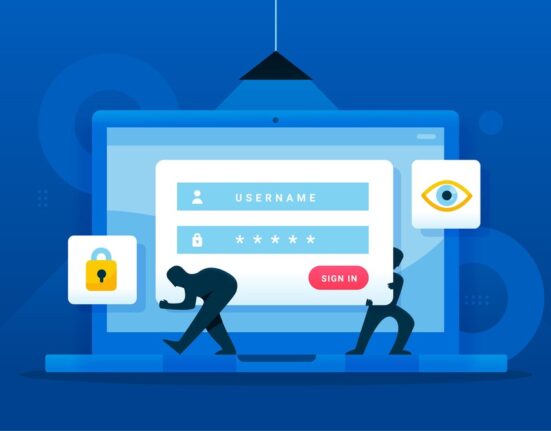In the current digital environment, cyberattacks pose a serious risk to companies of all kinds. Company owners need to understand how vital it is to safeguard their companies from cyberattacks. Cyberattacks can have disastrous effects, such as monetary losses, harm to one’s reputation, and even legal implications.
1. Financial Impact of Cyber Attacks: Protecting Your Bottom Line
The financial health of your company might be severely damaged by cyberattacks, which can result in significant losses from ransomware attacks, data breaches, and other criminal activity. Recovering from a cyberattack can come at a hefty price, including lost income due to downtime, legal fees, regulatory penalties, and expenditures for data recovery. Furthermore, a cyberattack’s long-term financial effects, such as harm to your company’s brand and loss of client confidence, can have far-reaching effects that affect your revenue for years to come. By giving cyber security measures priority, you can reduce the financial risks brought on by cyberattacks and protect the long-term viability of your company.
2. Protection of Sensitive Data: Safeguarding Your Assets
Your company probably has a lot of sensitive data stored, such as financial records, client information, and intellectual property. Ensuring that this precious information is protected against theft, illegal access, and exploitation is essential to protecting the assets of your company and preserving the confidence of your stakeholders and consumers. Sensitive data breaches from successful cyberattacks can have dire repercussions, including harm to one’s brand, a decline in consumer confidence, and even legal ramifications. It is important to have strong data security measures in place to preserve your company’s assets and guarantee the privacy, availability, and integrity of your sensitive data. These methods include encryption, access limits, and regular data backups.
3. Reputation Management: Preserving Your Brand Image
One of the most precious things your company has is its reputation. A cyberattack that jeopardizes the security of your systems or releases confidential information can damage your brand’s image and destroy consumer confidence. You can also opt for a whitelisting strategy in this regard. News of a data breach or cyberattack travels swiftly in today’s hyperconnected world, thereby irreversibly harming your company’s brand. Consumers are becoming more and more aware of the security policies of the companies they do business with, and any perceived breach in security can result in a loss of clients and sales. Customers’ confidence and loyalty can be maintained, your brand’s reputation preserved, and your dedication to safeguarding consumer data shown, all by placing a high priority on cyber security.
4. Legal and Regulatory Compliance: Meeting Obligations
The amount of rules and regulations controlling the privacy rights of persons and the protection of sensitive data is constantly expanding, and this affects businesses. Legal action, fines, and other serious repercussions can follow noncompliance with these legal and regulatory obligations. Ensuring compliance with relevant laws and regulations, including the Payment Card Industry Data Security Standard (PCI DSS), the Health Insurance Portability and Accountability Act (HIPAA), and the General Data Protection Regulation (GDPR), requires the implementation of strong cyber security measures. By proactively guarding your company from cyberattacks, you can reduce the chance of non-compliance and steer clear of potentially expensive legal and regulatory repercussions.
5. Business Continuity and Resilience: Maintaining Operations
Cyberattacks can cause operational disruptions for your company, resulting in lost productivity, downtime, and missed opportunities. A successful cyberattack has the potential to destroy your networks and systems, making regular company operations difficult or impossible. Maintaining business continuity and resilience in the face of cyber threats requires the implementation of strong cyber security measures, such as frequent data backups, disaster recovery planning, and incident response procedures. You can lessen the effect of cyberattacks on your company’s operations and make sure it can prosper in the face of difficulty by creating and putting into practice a thorough cybersecurity plan.
6. Proactive Risk Management: Staying Ahead of Threats
Because cyber dangers are always changing, organizations must take a proactive stance when it comes to cyber security. You can keep ahead of possible dangers and reduce your company’s exposure to cyber risks by keeping up with developing trends and cyber threats, performing frequent risk assessments, and putting in place the necessary security measures. Investing in cyber security helps future-proof your company against new threats and weaknesses, in addition to safeguarding it from current ones. You can successfully reduce the dangers presented by cyberattacks and guarantee the long-term survival and resilience of your company by making cybersecurity a key component of your business plan.
Conclusion
Safeguarding your company’s financial stability, keeping confidential information, upholding the reputation of your brand, guaranteeing legal and regulatory compliance, preserving business continuity and resilience, and proactively managing cyber risks all depend on your capacity to defend it from cyberattacks. Recall that there are huge risks associated with cyber security and that the cost of doing nothing is far higher than the expense of taking precautions.






